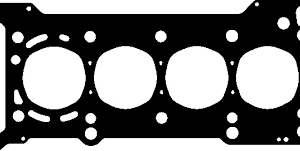-33%
Oil filter Mazda Atenza, Axela, Biante, CX-7, Mazda 3,Mazda 5,Mazda 6,Mazda 8 Mazda Premacy and Tribute price in Kenya
Oil filter Mazda Atenza, Axela, Biante, CX-7, Mazda 3,Mazda 5,Mazda 6,Mazda 8 Mazda Premacy and Tribute price in Kenya is ksh 1000. Oil filter Mazda Atenza, Axela, Biante, CX-7, Mazda 3,Mazda 5,Mazda 6,Mazda 8 Mazda Premacy and Tribute with reference number OE406J Js Asakashi and L321-14-300A, L321-14-302, L321-14-302-9U L321143029A and LF01-14-302.
The oil filter is a small but crucial component in a vehicle’s engine system, tasked with the vital role of maintaining the cleanliness of the engine oil. While often overlooked, the oil filter plays a significant part in ensuring the longevity and optimal performance of the engine. Understanding the importance of the oil filter and recognizing signs that indicate it requires replacement is essential for preserving engine health and overall vehicle reliability.
Importance of the Oil Filter:
- Contaminant Removal: The primary function of the oil filter is to remove contaminants and impurities from the engine oil. Over time, dust, metal particles, and debris accumulate in the oil as a result of engine operation. The oil filter captures these contaminants, preventing them from circulating and causing damage to critical engine components.
- Engine Lubrication: Clean oil is essential for proper engine lubrication. The oil filter ensures that the engine oil remains free from particles that could compromise its lubricating properties. Effective lubrication is crucial for minimizing friction between moving parts, reducing wear, and maintaining the overall efficiency of the engine.
- Extended Engine Life: By preventing contaminants from circulating through the engine, the oil filter contributes to the longevity of the engine. Clean oil with adequate lubricating properties helps protect engine components from excessive wear and tear, ultimately extending the lifespan of the engine.
- Optimal Engine Performance: A well-maintained oil filter supports optimal engine performance. Clean oil promotes efficient heat dissipation, preventing the engine from overheating. Additionally, proper lubrication ensures that all engine components work together smoothly, contributing to consistent and reliable performance.
- Fuel Efficiency: An engine operating with clean oil experiences reduced friction and resistance, leading to improved fuel efficiency. The oil filter plays a role in maintaining the engine’s efficiency by ensuring that the oil remains free from contaminants that could hinder its ability to reduce friction effectively.
Signs You Should Change the Oil Filter:
- Dirty or Darkened Oil: During routine oil level checks, inspect the color and consistency of the engine oil on the dipstick. If the oil appears excessively dark or dirty, it may indicate that the oil filter is no longer effectively capturing contaminants. Changing the oil and the filter is recommended to restore optimal oil quality.
- Reduced Oil Pressure: A decrease in oil pressure can be a sign of a clogged or failing oil filter. Insufficient oil pressure compromises the lubrication of engine components, leading to increased friction and potential damage. Monitoring oil pressure gauges and addressing any noticeable drops is crucial for preventing engine problems.
- Engine Noises: Unusual noises from the engine, such as ticking or knocking sounds, may indicate insufficient lubrication due to a clogged oil filter. Proper lubrication is essential for minimizing friction between engine parts, and any disruption in this process can lead to increased noise levels.
- Poor Engine Performance: A decrease in overall engine performance, such as reduced power, sluggish acceleration, or poor fuel efficiency, can be attributed to a compromised oil filter. Inefficient filtration can lead to oil contamination, affecting the engine’s ability to operate at its full potential.
- Visible Metal Particles: If, during an oil change, you notice visible metal particles in the drained oil, it indicates potential engine wear. The oil filter may not be effectively capturing these particles, allowing them to circulate and cause damage. Addressing this issue promptly is crucial for preventing further engine damage.
- Oil Warning Light: Modern vehicles are equipped with oil warning lights or indicators on the dashboard. If the oil filter is not effectively filtering contaminants, the oil pressure may drop, triggering the warning light. Ignoring this warning could lead to severe engine damage, and immediate attention is required.
- Excessive Exhaust Smoke: A clogged oil filter can lead to increased oil consumption and inadequate lubrication. This may result in excessive exhaust smoke, indicating that oil is burning within the engine. Monitoring the exhaust for unusual smoke colors and addressing any abnormalities is crucial for diagnosing potential oil filter issues.
- Oil Leaks: Leaking oil around the oil filter housing or gasket may suggest a failing oil filter seal. A compromised seal can allow unfiltered oil to leak out, leading to potential oil pressure issues and increased risk of engine damage. Addressing oil leaks promptly is essential for maintaining engine health.
Conclusion:
The oil filter is a critical component in the engine’s health, playing a vital role in contaminant removal, lubrication, and overall engine performance. Recognizing signs that indicate the need for an oil filter replacement, such as dirty oil, reduced oil pressure, engine noises, and warning lights, is crucial for preserving engine health and ensuring the long-term reliability of the vehicle. Regular oil and filter changes, along with adherence to recommended maintenance schedules, contribute to a well-functioning oil filtration system and support the optimal performance of the engine. By understanding the importance of the oil filter and staying vigilant for signs of wear, vehicle owners can contribute to the longevity and efficiency of their engines, promoting a smoother and more reliable driving experience.



